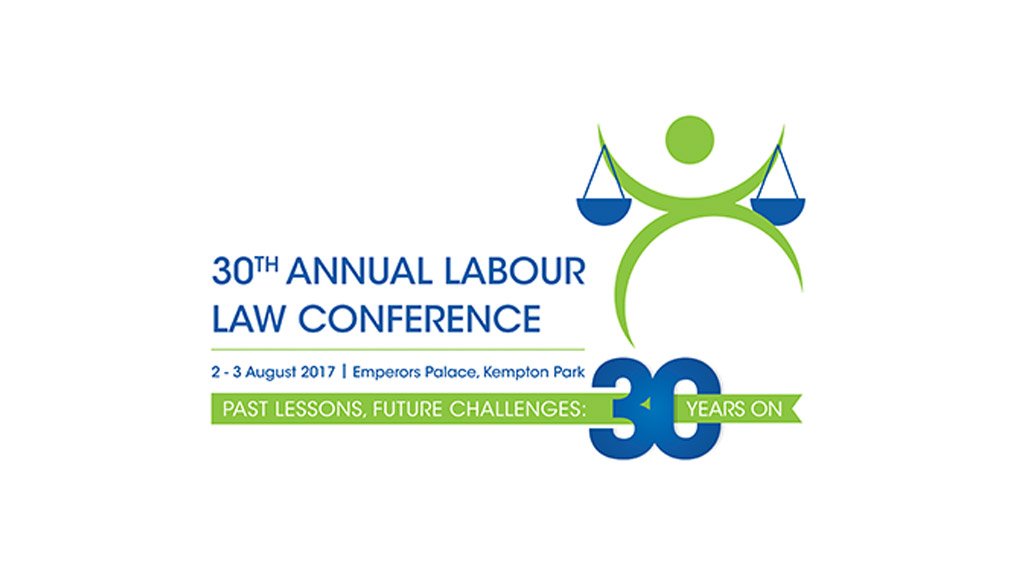South African workers are finding the workplace more uncertain with trade unions seemingly as less effective. For this reason Lindiwe Maqutu, lecturer in Labour Law and Introductory Constitutional Law at the University of KwaZulu-Natal, believes the plenary session on the future of trade unions during the 30th Annual Labour Law Conference next month, is absolutely necessary.
This session is facilitated by High Court Judge Dennis Davis and includes panellists Jay Naidoo who served as telecommunications minister under former President Nelson Mandela and author of Change: Organising Tomorrow, Today; Gideon du Plessis, General Secretary, Solidarity / Solidariteit and Dennis George, General Secretary, Federation of Unions South Africa (Fedusa). The only conference of its kind in the country, the 30th Annual Labour Law Conference takes place from August 2-3 2017 at Emperors Place, Kempton Park, Gauteng.
Trade unions have to adapt, said Maqutu. “If done well this plenary is an opportunity to encourage trade unions to see how they can adjust to the new employment landscape – one in which employers are effectively distancing themselves from their employees using labour brokers; this has made it more difficult for trade unions to mobilise workers. The creation of a black elite in senior management in the midst of a salary gap between management and workers has widened inequality,” she added.
When the Labour Relations Act (LRA) of 1995 was fashioned based on South Africa’s constitution and in the global context of adherence to a free market economy, it was believed that a few strong trade unions populated by the majority of employed workers would yield industry wide modifications to working conditions, leading to rising wages which in turn would alleviate the plight of the marginalised working class.
“Instead some 22 years later security of employment has become endangered,” said Maqutu.
Workers appear to be expendable; contract work is on the rise; the spread of agencies ostensibly employing and supplying temporary workers has enabled de facto employers to distance themselves from employees. Workers are losing effective mechanisms for airing grievances due to the precarious nature of their employment – the places where workers conduct employment duties is not necessarily in their designated workplace, so it is becoming more difficult for trade unions to effectively organise and represent their members.
Protections provided for by labour laws may be circumvented since ultimately the viability of the business enterprise has to be given priority, sometimes to the disadvantage of workers.
Arguably, the current SA trade union movement is based on an economic work model that no-longer exists and workers are losing out.
“Therefore it is vital to discuss how relevant trade unions in their current form still are and ways to modify trade union operations, lest workers become causalities of dysfunctions in the system and the income inequality gap widen further rather than narrow,” she said.
The conference is traditionally attended by employers, human resources personnel and industrial relations managers, labour lawyers, trade unions, government representatives.
Appealing for a wider participation Maqutu said it was vital that civil society and NGO’s be included in the conference to ensure that the discussions are more apposite and widely disseminated in South Africa.
“The participants attending the conference, will have an opportunity to engage with policy makers and thereby influence its findings and possible outcomes in the South African industrial relations landscape. We need these diverse groups to attend in order to facilitate robust debate which will ‘stir the pot.’”
“Many South Africans are at a point of desperation. The Marikana Massacre did not happen in a vacuum and the problems that were highlighted then still exist and are part of the greater socio-economic inequality in our country.”
There are also practical reasons for attending the conference. People need to find out pertinent and most recent arbitration and Labour court decisions - discuss the leanings of the labour courts regarding employment, fair labour practices, dismissal and more.
As a method of informing the greater South Africa on the developments in the labour law the conference is relevant to everyone but particularly to those working on the cutting edge of labour practice.
Expected at this year’s conference are labour law specialists, trade unions, government officials, HR managers, labour practitioners, lawyers and business leaders. Professionals will be brought up to date by prominent labour law and economic experts, who will present papers and lead discussions on changes that affect the labour market and workplace law, including crucial judgements.
For bookings or more information on the 30th Annual Labour Law Conference to be held from 2-3 August 2017 at Emperors Palace, Kempton Park, Gauteng visit www.annuallabourlawconference.co.za





